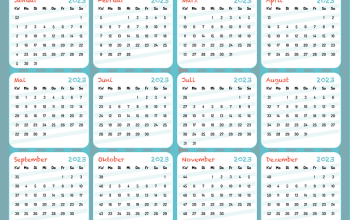Event planning for local businesses has become significantly enhanced through strategic social media utilization. Social platforms like Facebook, Instagram, and Twitter are not just for visibility but also for engaging directly with the community, targeting specific demographics to maximize event reach and impact. By leveraging targeted ads, local businesses can ensure their messaging resonates with those most likely to attend. The use of local hashtags and geotags promotes events while celebrating community spirit and local enterprises. Engagement is key, as sharing authentic content, live updates, and interactive features like polls and Q&A sessions keeps the audience invested. Real-time communication, post-event follow-ups, and data-driven analytics allow businesses to refine their strategies and maintain relevance in the community. This approach not only boosts local business visibility but also enriches online communities, leading to sustained growth and engagement, which is essential for brand awareness and sales growth. Event planning for local businesses on social media is a dynamic process that combines analytics with community interaction to create impactful and memorable events.
Navigating the digital landscape, local businesses can harness the power of social media to orchestrate impactful events that resonate with their target audience. This article delves into the art of social media event planning, offering a comprehensive guide and insights on how to effectively leverage these platforms. From crafting compelling invitations to utilizing strategic analytics for measuring success, the journey through ‘Event Planning for Local Businesses’ ensures a robust framework for managing events that captivate and engage. Join us as we explore the essential steps for successful social media event management, ensuring your local business stands out in the online community.
- Leveraging Social Media for Effective Local Business Event Planning
- Strategies for Managing Social Media Events: A Step-by-Step Guide
- Measuring Success: Analytics and Feedback in Social Media Event Management for Local Businesses
Leveraging Social Media for Effective Local Business Event Planning

In the realm of local business event planning, social media emerges as a potent tool to amplify reach and engagement. Crafting a robust social media strategy tailored to the specific demographic of a community can significantly enhance event visibility. By leveraging platforms like Facebook, Instagram, and Twitter, businesses can create buzz, share event details, and interact with potential attendees in real-time. Utilizing targeted ads and sponsored content allows for precise audience segmentation, ensuring that the event messaging resonates with locals who are most likely to participate. Furthermore, the use of local hashtags and geotags not only promotes the event but also strengthens community ties by highlighting local businesses as integral parts of the area’s social fabric.
Effective engagement through social media extends beyond mere promotion; it involves a dynamic dialogue with the audience. Local businesses can foster this interaction by featuring behind-the-scenes content, sharing testimonials from past attendees, and offering exclusive social media-only perks to entice participation. Real-time updates and live streaming of events can also create a sense of immediacy and exclusivity, drawing in an audience who may feel connected to the event’s happenings as they unfold. By strategically integrating social media into every facet of event planning for local businesses, organizers can transform what might have been a modest gathering into a significant community event with lasting impact.
Strategies for Managing Social Media Events: A Step-by-Step Guide

To successfully manage social media events, particularly for local businesses, a strategic approach is essential. The planning phase involves setting clear objectives for the event, understanding your target audience, and choosing the most appropriate social media platforms to engage with them. Utilize these platforms to create buzz and anticipation for the event, sharing teasers, event details, and interactive content that resonates with your local community.
In the execution phase, consistent and real-time communication is key. Post regularly to keep potential attendees informed and engaged. Use a variety of content formats such as live videos, polls, and Q&A sessions to foster interaction. Ensure all social media accounts are updated with event information, including dates, times, locations, and any special instructions. Monitor comments and messages to address questions promptly and to create a sense of excitement and anticipation. During the event, leverage real-time updates to keep followers engaged, sharing highlights as they happen. After the event concludes, follow up with attendees through social media, thanking them for their participation and providing them with additional resources or promotions related to your local business. This not only cultivates goodwill but also sets the stage for future events, thereby growing your online community and enhancing your local business’s presence on social media platforms.
Measuring Success: Analytics and Feedback in Social Media Event Management for Local Businesses

In the realm of local business marketing, event planning on social media serves as a dynamic platform to engage with communities and potential customers. The success of these online events hinges significantly on the ability to track and analyze performance through analytics and gather actionable feedback. By leveraging sophisticated analytics tools, businesses can monitor key metrics such as engagement rates, audience reach, and conversion rates. These insights enable local enterprises to refine their strategies in real-time, optimizing content delivery and event timing to resonate with their target demographic. Additionally, post-event feedback collection through surveys and direct messaging allows for a nuanced understanding of attendee sentiment, preferences, and the overall impact of the event. This data is indispensable for making informed decisions that enhance future social media event planning efforts, ensuring that local businesses can deliver more tailored and effective events that drive brand awareness and sales.
Furthermore, integrating analytics with social listening strategies enriches the feedback loop. By observing real-time interactions and sentiment analysis, businesses can swiftly adapt to audience reactions and preferences. This responsiveness not only measures success but also contributes to building a strong online community. Local businesses that adeptly manage social media events and interpret data can foster a sense of belonging among participants, leading to higher engagement and loyalty. The synergy between analytics and feedback is a powerful tool for local businesses looking to maximize the effectiveness of their social media event planning endeavors.
Effectively managing social media events is a pivotal aspect of event planning for local businesses, serving as a conduit to enhance brand visibility and engage with the community. By implementing tailored strategies and leveraging analytics, businesses can measure success and refine their approach. This article has outlined key steps and considerations that will aid in the seamless execution of social media events, ensuring that local enterprises can maximize their digital presence and foster meaningful connections with their audience. With these insights, local businesses are well-equipped to host impactful and memorable online events that resonate with their target demographic.




